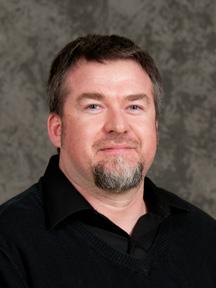About Us
Andrew Adams
Mr. Adams joined IMPACT HIV as a volunteer researcher in May 2010 working primarily with the group on HIV Incidence modeling. Mr. Adams started a MSc. in Applied Mathematics in the Fall of 2011 at SFU. He has previously completed a BCOM at McGill University, as well as studying math at UBC with a focus on probability, optimization, and statistics. Mr. Adams also worked on research and analysis of MOS quality of life statistics while at the Montreal Chest Institute.
Lukas Ahrenberg
Lukas Ahrenberg received his M.Sc. in Scientific Computing from Uppsala University, Sweden and his Ph.D. from the Max-Planck-Institute für Informatik, Germany in 2007. His research interests include anything that can be computed, quite a few things that can't be, and situations when no one seems to know. Lukas joined the IMPACT-HIV group in 2010 as a post-doctoral fellow. He is developing the NepidemiX simulations software for the study processes on networks in general and of the HIV epidemic in particular.
Peter Borwein
Dr. Borwein holds a Burnaby Mountain Chair in Mathematics at SFU and is the founding Executive Director of the IRMACS Centre. He received his Ph.D. in Mathematics from the University of British Columbia and is the author of nine books and over 150 research articles. His research interests span mathematical modelling, computational number theory, classical analysis, and symbolic computation. An award-winning mathematician, he has led three major initiatives within national mathematics groups, including MITACS, PIMS and the IRMACS Centre. He has been involved in a number of large-scale computational number theory and combinatorial problems. In 2004, Dr. Borwein founded the highly successful CFI-funded IRMACS Centre based on a unique model for interdisciplinary research that builds on a core cluster of mathematical and computational expertise to forge multidisciplinary collaborations within the sciences.
Angela Cescon
Angela Cescon works with the Epidemiology and Population Health program at the BC Centre for Excellence in HIV/AIDS. She joined the IMPACT-HIV group in 2010, and collaborates with the team on a number of projects, including the formative work for the Downtown Eastside network model. She also facilitates and advises on the use of various cohort data to inform different modelling projects. Angela conducted her master's research at the Perinatal HIV Research Unit (PHRU) in Soweto, South Africa, and is a recipient of the SFU Dean of Graduate Studies Convocation Medal.
Robert Hogg
Robert Hogg is a Professor in the Faculty of Health Sciences at SFU, the Director of the Drug Treatment Program at the BC Centre for Excellence in HIV/AIDS and the principle investigator of the Canadian Observational Cohort (CANOC) and the Longitudinal Investigation into Supportive and Ancillary Health Services (LISA) Project. His research primarily focuses on population health with an emphasis on HIV/AIDS, antiretroviral therapy, epidemiology, public health, especially in high-risk and marginalized populations. He is co-founder of the IMPACT-HIV group.
Sarah Kok
Sarah Kok completed her B.Sc. in Mathematics at SFU and the University College Maastricht. She completed her M.Sc. in Mathematics at SFU, where she developed mathematical models to predict the impact of serosorting on an HIV epidemic. She is also a member of the Complex Systems Modeling Group at SFU, where she works on developing mathematical models the HIV epidemic in Vancouver. She has been involved with the IMPACT-HIV research group since September 2010.
Viviane Dias Lima
Viviane Dias Lima is senior statistician at the British Columbia Centre for Excellence in HIV/AIDS. By combining statistical, mathematical and epidemiological methods, her area of research focuses on the investigation of innovative prevention strategies to the transmission of HIV, and innovative intervention strategies to avert HIV/AIDS disease progression. She joined IMPACT-HIV in 2008. Dr. Lima is a recipient of two research fellowships by the Canadian Institutes of Health Research and by the Michael Smith Foundation for Health Research to identify and assess the effectiveness of competing treatment-management interventions to improve adherence over a person’s treatment history in order to prevent or reduce disease progression.
Lillian Lourenco
Lillian Lourenco is a Research Assistant working for the BC Centre for Excellence in HIV/AIDS. She is currently in her second year of her Masters of Public Health Program at the School of Population and Public Health, University of British Columbia. Over the past summer she completed a practicum at the BCCfE working on evaluating elements of the Seek and Treat for Optimal Prevention (STOP) of HIV program. She also works with IMPACT-HIV on developing models to measure incidence of HIV. Currently, she is working predominantly on Global HIV-related research alongside Dr. David Moore.
Brandon Marshall
Brandon Marshall completed his Ph.D. in Epidemiology at the University of British Columbia School of Population and Public Health. He is currently a Postdoctoral Fellow in the Department of Epidemiology at the Columbia University Mailman School of Public Health. His research interests focus on substance use epidemiology and the social, environmental, and structural determinants of health among vulnerable populations. He has published more than 30 scientific papers and has won numerous research and training awards, including the American College of Epidemiology 2010 Student Prize. He holds a postdoctoral fellowship from the Canadian Institutes of Health Research and is the recipient of the International AIDS Society / National Institutes of Drug Abuse Fellowship Encouraging HIV & Drug Use Research.
Warren Michelow
Warren Michelow is an epidemiologist with the Drug Treatment Program. There he manages a portfolio of studies concerning populations of men who have sex with men. He serves as a source for consultation, collaboration, mentoring and applying epidemiological expertise in response to a broad range of HIV/AIDS-related activities. His research interests include epidemiology, biostatistics, HIV/AIDS, mathematical modeling, substance use and misuse, harm reduction, and gender and health. Warren is currently a Ph.D. candidate in the School of Population and Public Health at UBC, and has received the Frederick Banting and Charles Best Canada Graduate Scholarships Doctoral Award and the Integrated Mentor Program in Addictions Research Training Fellowship.
Ali Nadaf
Ali Nadaf joined the IMPACT-HIV in 2010 as a research assistant from the United Nations Office on Drugs and Crime (UNODC), where he worked in information and communication technologies. Mr. Nadaf completed both his B.Sc. and M.Sc. in Industrial Engineering at the Iran University of Science and Technology and is currently pursuing his Ph.D. in mathematics at Simon Fraser University. His research interests focus on modelling social welfare issues, including designing and modeling Afghanistan’s drug trafficking routes, analyzing the role of sexual behavior risk behavior in HIV transmission, and using population distributions to design a dynamic map of suitable locations for establishing treatment centers.
Jamie Nordio
Jamie Nordio is completing his B.Sc. at SFU and joined IMPACT-HIV in June 2013 as a research assistant in mathematical modelling, working on the collaborative project to model the HIV epidemic in the Republic of Panama.
Riaz Gregory Qureshi
Riaz Gregory Qureshi is currently in the Health Studies and Gerontology program of the Faculty of Applied Health Science at the University of Waterloo, Southern Ontario. He is in his second year of the co-op program and is working with the IMPACT-HIV on a simulation project comparing the efficiencies of random-screening and contact-tracing sampling methods. While still remaining interested in health care research, Riaz is considering majoring in psychology as he wishes to contribute to the field of research that he believes, "still has much to offer us in understanding of ourselves and how our minds function."
Bojan Ramadanovic
Bojan Ramadanovic received his Ph.D. in Physics from the University of British Columbia in 2008 for studies in string theory. He is a research scientist with the Complex Systems Modelling Group at the IRMACS Centre and IMPACT-HIV. In this capacity he has been developing models of the criminal justice system of British Columbia, surgical waitlists and the HIV epidemic. His HIV work focuses on understanding transmission of infection in the context of the behavioural and social characteristics of at-risk populations, and developing a model to estimate HIV incidence and the size of the undiagnosed HIV-positive population. He is also very interested in combining behavioral models, game theory, and classical economics to explain the apparent deviations from the “efficient market” hypothesis. His other academic interests include operational research in health sciences. As an avid player of strategy board games, he takes his interest in modeling, optimization and economic systems beyond a purely scholarly level.
Alexander Rutherford
Alexander Rutherford is the Scientific Director of the Complex Systems Modelling Group at the IRMACS Centre. Prior to joining the CSMG, Dr. Rutherford was the Scientific Executive Officer at the Pacific Institute for the Mathematical Sciences (PIMS). Dr. Rutherford holds a Ph.D. in Mathematical Physics from the University of British Columbia and held postdoctoral fellowships at the Swiss Federal Institute of Technology (ETH) in Zurich, Switzerland, and the International School for Advanced Studies (SISSA) in Trieste, Italy. His research spans a wide range of fields within the mathematical sciences. In mathematical physics, his main focus has been on quantum-mechanical many-body problems. In health research, he worked on the design and evaluation of protocols for electronic health records and applications of queuing theory to surgical waitlists and the acute care system. He has also worked on application of dynamical systems methods to health care modelling, criminal justice system modelling, and epidemiology. Dr. Rutherford lends his extensive mathematical experience to overseeing the mathematical modelling research conducted at IMPACT-HIV.
Hasina Samji
Hasina Samji is an Epidemiologist at the BC HIV/AIDS Drug Treatment Program at the BC Centre for Excellence in HIV/AIDS. Her research examines social and structural barriers to the initiation and continuation of HIV treatment and the impact of each on HIV disease progression. She manages the BCCfE’s participation in two international cohort collaborations, NA-ACCORD and ART-CC. Hasina is a doctoral student at the Johns Hopkins Bloomberg School of Public Health, where she has received a Doctoral Student Entrance Merit Scholarship, a member of the CIHR Centre for Research Evidence in Action for Community Health (REACH), and a recipient of the Canadian Association for HIV Research (CAHR) New Investigator Award. She provides epidemiological expertise for all modelling projects conducted at IMPACT-HIV.
Will Small
Will Small coordinates the Urban Health Research Initiative (UHRI) qualitative research program and the UHRI community-based research study undertaken in partnership with the Vancouver Area Network of Drug Users (VANDU). He has used his expertise in the social sciences to promote an ecological perspective on public health issues by identifying the influence of social and structural factors, including law and policy, in shaping health inequalities and HIV risks among injection drug users. His work is supported by the Canadian Institutes of Health Research and the Michael Smith Foundation for Health Research. As a participant in the IMPACT-HIV group, he provides expertise on qualitative research on drug use and HIV infection risk in Vancouver’s Downtown Eastside for the network modelling project.
Krisztina Vasarhelyi
Krisztina Vasarhelyi received an M.Sc. in Medical Genetics from the University of British Columbia, and a Ph.D. in Anthropology from the University of Zurich, Switzerland and conducted post-doctoral studies with the Population Genetics and Genetic Epidemiology Group at University of Ferrara in Italy. Together with Dr. Robert Hogg, she co-founded IMPACT-HIV in 2008. Krisztina’s research has always been conducted in collaboration with mathematicians and she acquired extensive experience in managing interdisciplinary research collaborations. She has also worked as a consultant on several public health projects. Krisztina’s research ranged from statistical studies of human chromosome abnormalities, population genetic reconstruction of relationships in endangered primate groups, reconstruction of prehistoric demographic processes in Europe and HIV epidemiology and modelling. Krisztina is the project coordinator for the IMPACT-HIV group.
Ralf Wittenberg
Ralf Wittenberg began his mathematics and physics studies in Durban and Cape Town in his native South Africa, and completed an Applied Mathematics Ph.D. at Princeton University. Following postdoctoral work at the Universities of Minnesota (during a Mathematics in Biology theme year at the Institute for Mathematics and its Applications) and Michigan, he moved to Simon Fraser University, where he is an Associate Professor in the Department of Mathematics. Ralf has been involved with the IMPACT-HIV group since 2009, participating in the development and analysis of mathematical models of the HIV epidemic. His other research in dynamical systems focuses on theoretical aspects of fluid dynamics, and analytical and numerical investigations of partial differential equations displaying pattern-forming and chaotic behaviour.
